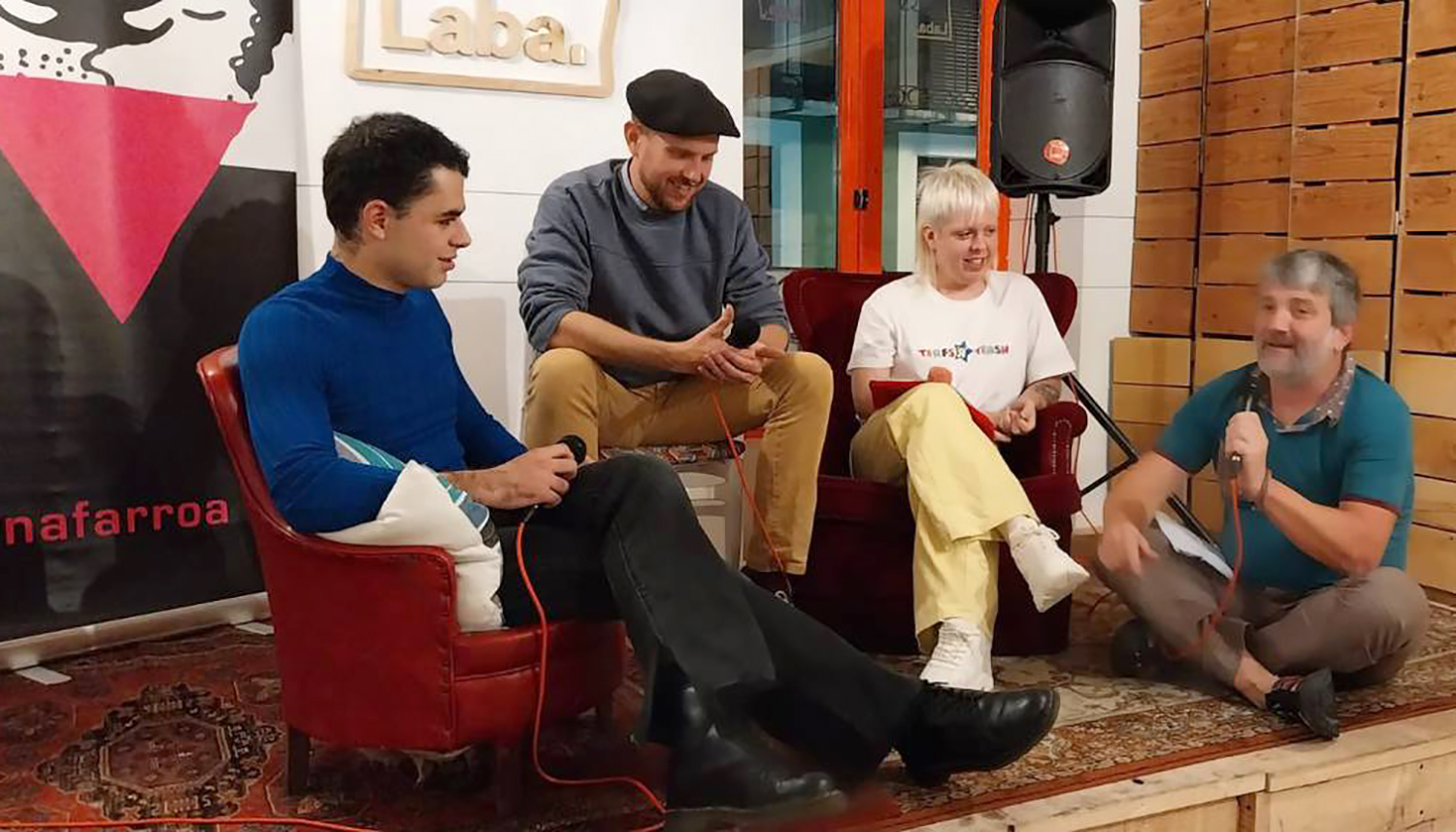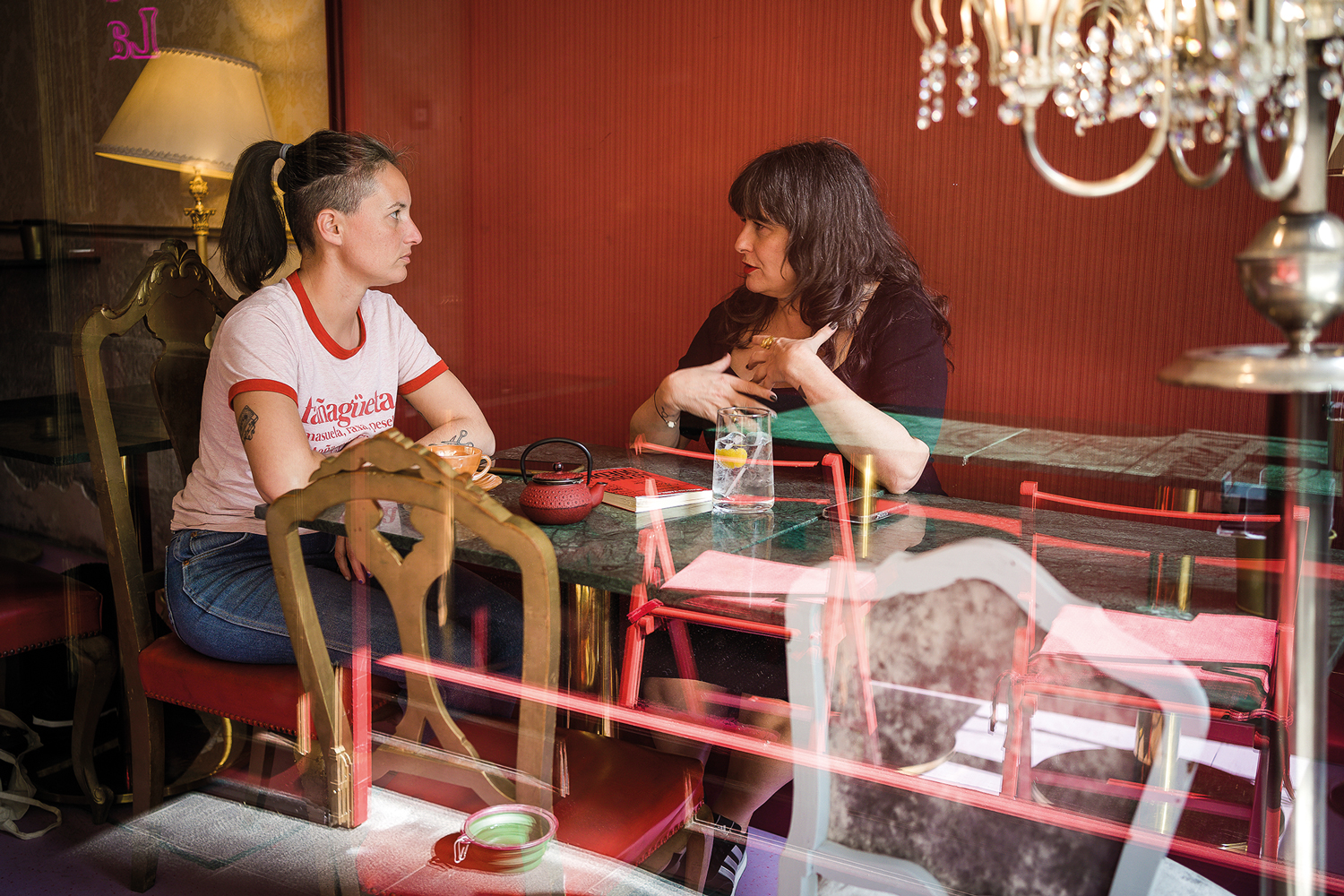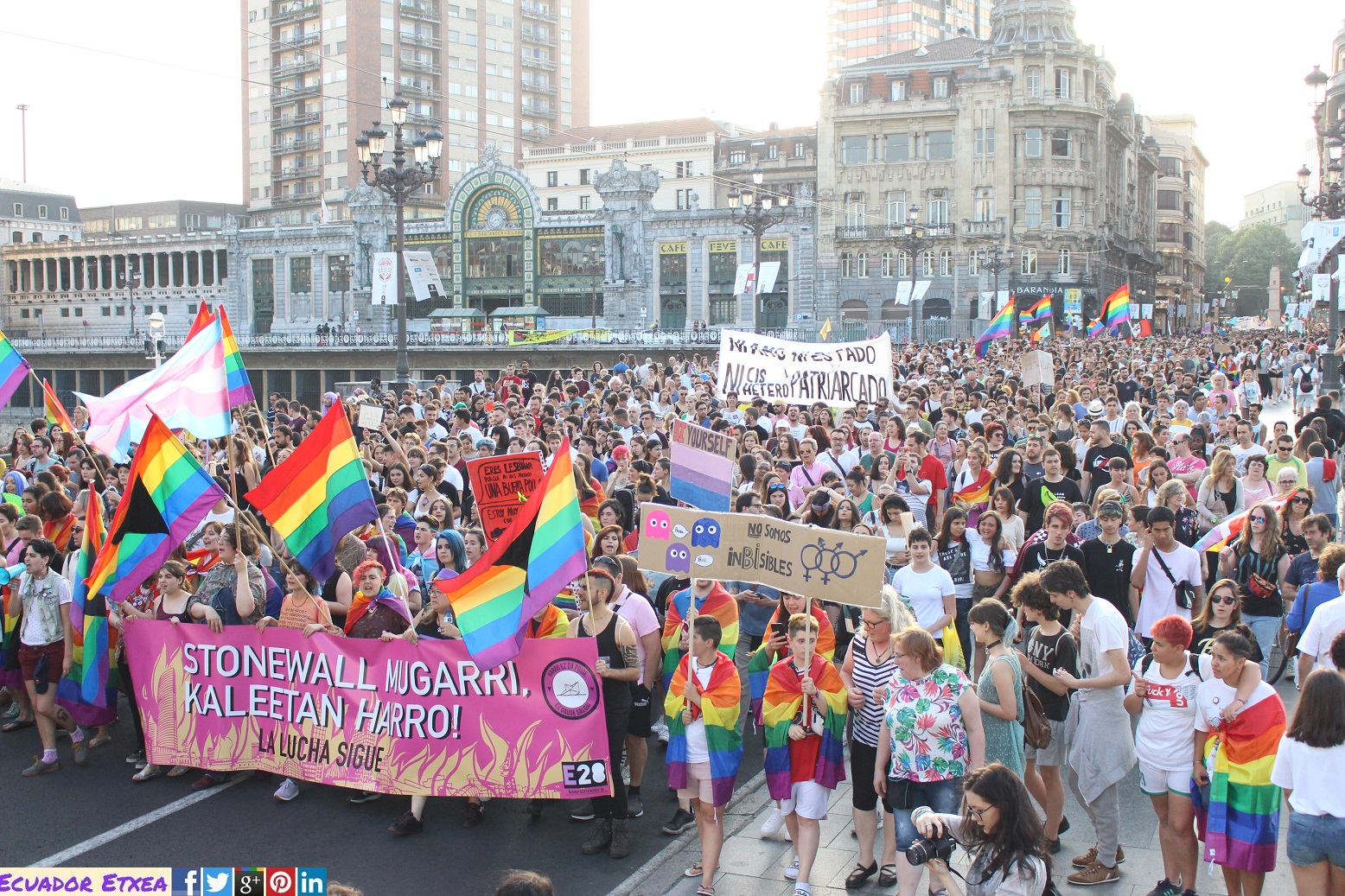Les Carolines, the first trans demonstration?
- Barcelona 1931. In an environment crisscrossed by riots, anarchist bombs and police responses, Karolin's revolt was unleashed in the Raval district.

Les Carolines or Karolinas told Cal Sacristá and young travestes that they were engaged in prostitution in similar premises or in space, public toilets. This tumultuous environment prevented them from working, and when, amid the snack, one of the public toilets was destroyed, the Carolinas exploded. We do not know on what day the protest took place, we cannot even take it for granted that it took place that year, there are no photos and even the press at the time made no mention of it.
One of the few sources of Karolin’s manifestation is a fragment that the Parisian writer Jean Genet (1910-1986) collects in his autobiographical Journal du voleur (1949) and that gives more details. At that time Jean Genet himself exercised prostitution or theft in Raval and witnessed the protest:
This 31st of March there will be no opportunity to claim on the street the International Day of Trans Visibility, but there is always the possibility of making visible those who took the streets almost 90 years ago.
“I was close to the port and the barracks, eating metal sheets with the temperate pichas of thousands of soldiers. Upon learning that it had been definitively lost, Karolina went with chales, mantelinas, silk dresses and narrow chests (…). The church departed from the Parallel and took the street of St. Paul, descending down the Rambla until reaching the statue of Columbus. It was eight in the morning. I saw them passing by and followed them. I knew it was my place: their wounded voices, their regrets, their exaggerated gestures, wanted to pierce the dense contempt of the world. The carolinas were terrible. Daughters of Shame. When they came to the port, they turned right, towards the barracks, and left flowers on the rusty and smelly veneer of the public sink.”
The writer always talked about them using the female gender. But can we consider Carolinas or some of them as transgender women, when the same word was not used at that time? Without knowing what concrete demands were made during the protest, can Genet’s description be considered a first trans demonstration? Among them, Spanish journalists Paco Tomás and César Vallejo (authors of the documentary series We are LGBT) or the Catalan Association of Transgender, Intersex and Transgender (ATC Llibertat) believe it is.
In 2017, the City of Barcelona launched the Carolines program to guarantee the rights of trans women and improve their quality of life, especially of sex workers. And this 31st of March there will be no possibility of claiming on the street the International Day of Trans Visibility, but there is always the possibility of making visible those who took the streets almost 90 years ago.






















